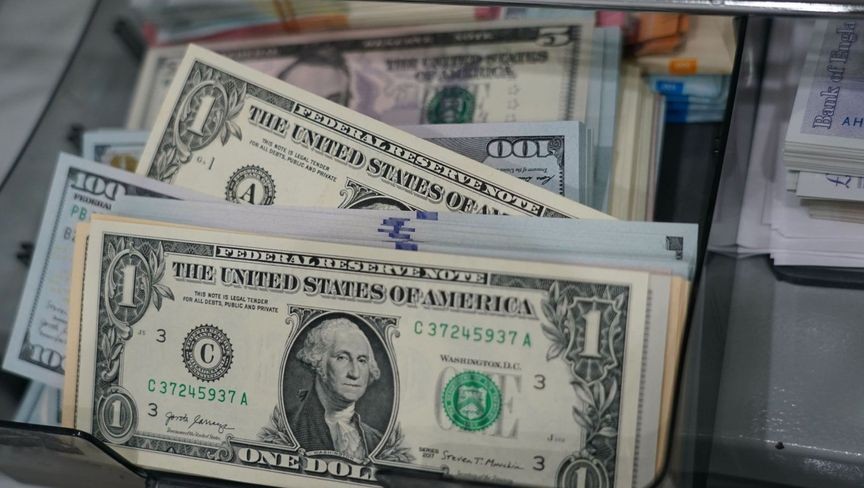The dollar was steady against other major currencies in Asian trade on Wednesday as investors continued to assess the impact of US President-elect Donald Trump's pledges to impose tariffs while awaiting key US inflation data later in the day.
Trump on Monday vowed to impose massive tariffs on Canada, Mexico and China, the United States' three largest trading partners, unnerving investors.
The New Zealand dollar rose after the Reserve Bank of New Zealand cut its benchmark interest rate by 50 basis points to 4.25 percent, noting that inflation had fallen to near the middle of its target range.
Markets are likely to remain nervous as a second Trump term brings renewed uncertainty about the U.S. policy situation, Commonwealth Bank of Australia currency strategist Carol Kong told Reuters.
She added that this ambiguity may push markets to 'sell first and ask questions later', which is positive for the US dollar.
The dollar was little changed against its Canadian counterpart at C$1.4052, below Tuesday's four-and-a-half-year high of C$1.4178.
The dollar remained off Tuesday's peak against the Mexican peso after touching its highest levels since July 2022 in the previous session.
The US currency also rose to its highest level since July 30 against the Chinese yuan on Tuesday.
US President Joe Biden said yesterday that a ceasefire between Israel and the Hezbollah group in Lebanon will go into effect on Wednesday morning after the two sides agreed to a deal brokered by the United States and France. The Israeli shekel hit a three-month high yesterday.
The yen held onto gains made on safe-haven demand amid the turmoil. The dollar was last down 0.19 percent at a two-week low of 152.81 yen.
The dollar index, which measures the performance of the US currency against six major currencies, fell 0.07 percent to 106.83, according to Reuters data.
Markets are awaiting the October PCE price index reading, which will be released later on Wednesday.
Minutes of the Federal Reserve's November meeting, released Tuesday, showed that many policymakers agreed that it was appropriate to gradually ease monetary policy.
The euro was little changed at $1.0493, while the pound was last up 0.05 percent at $1.25735.
The Australian dollar was almost flat at $0.64755 after consumer price inflation remained at a three-year low in October.
On the cryptocurrency front, Bitcoin was trading at $91,795, still well below the record high of $99,830 it hit last week.
The cryptocurrency has risen more than 40 percent since the US election amid expectations that Trump will ease regulations on cryptocurrencies.






































